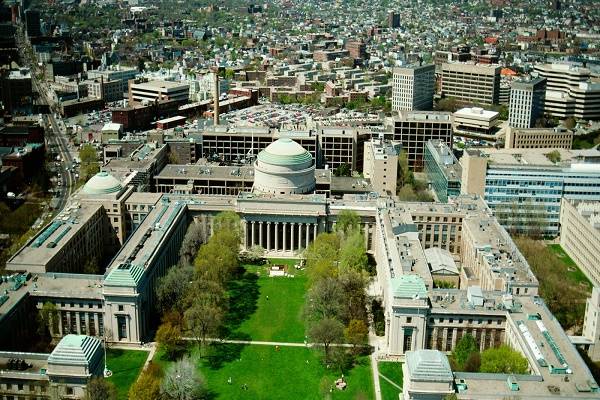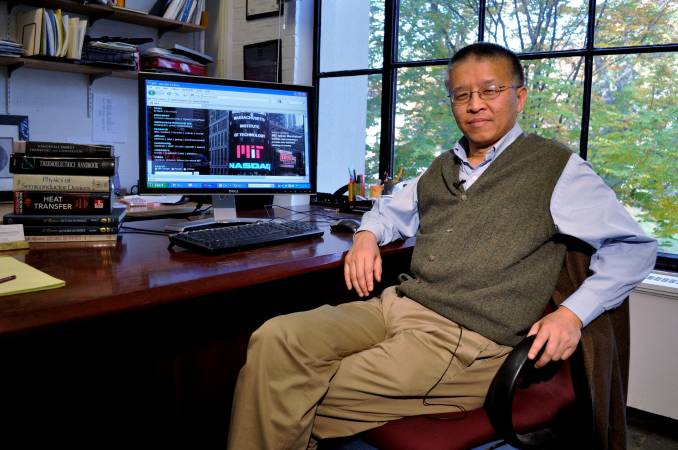Dismissal of Prof. Gang’s case exposes the folly of “China Initiative”
By Stephen.Ndegwa, January 21, 2022Top Chinese scientist and American Professor at the Massachusetts Institute of Technology (MIT) Gang Chen is a free man after the U.S. Department of Justice (DOJ) dropped all charges against him on Thursday. Gang, a Chinese-born nanotechnologist, was arrested on January 14, 2021 and charged with two counts of wire fraud, one count of failure to file a foreign bank account report and one count of making a false statement in a tax return.
Further, Gang was accused of hiding ties to his homeland when seeking U.S. federal grant money, with the Federal Bureau of Investigation claiming that he hid the work he undertook for the Chinese government. The trumped up charges were dropped in toto, and it is now time for experts to analyze the impact of the saga.
From the finality of the DOJ’s admittance of no contest, it shows that there must have been an inkling from the onset that the charges were dubious and could not stand the rigors of legal proceedings. This would have exposed the charges for what they were and embarrass the DOJ for not only a shoddy job, but also of malice.
The case against Gang is part of the diabolical China Initiative, which was formed ostensibly to counter China’s economic espionage and theft of trade secrets. According to the DOJ website, the Initiative was launched mid-2018 by the Department’s National Security Division, the agency responsible for countering nation-state threats to the U.S.
Experts are of the opinion that this Initiative was launched as a way of saving face amid China’s relentless economic onslaught against the superpower. It was a condescending way of showing the world that China could not have reached its current status as a global economic powerhouse – the second largest economy in the world – without some underhand dealings targeting the U.S.
Well, as the biggest “threat” to U.S. hegemony, China is in the crosshairs of this program. The DOJ has prosecuted several Chinese nationals on various transgressions as stated in its mandate. But legal experts see the charges as far-fetched and twisted to fit a predetermined narrative. Gang’s exoneration is testament to this observation and is a scenario that would actually be replicated in all the cases in this program if merit were to be applied.
The case against Gang was ill intentioned and ill advised, and devoid of common sense reasoning.
It is instructive that MIT was in shock after Gang’s charges and stood with him until the end, which included footing his legal fees. Hundreds of his colleagues also signed an open letter swearing by the Prof’s integrity.
Strictly speaking, the world of academia operates within a set of rules fairly removed from commercial, political and legal contradictions. Moreover, empirical research is a multipronged discipline that entails extensive networking that can be easily be misconstrued as scheming by the uninitiated.
A statement by Gang’s defense attorney Robert Fisher after the case’s dismissal was apt. “Our defense was never based on any legal technicalities. Gang did not commit any of the offenses he was charged with. Full stop. He was never in a talent program. He was never an overseas scientist for Beijing. He disclosed everything that he was supposed to disclose and never lied to the government or anyone else.”

The Gang case was also an attack on both his freedoms of conscience and expression, which are ironically among the top universal human rights that the U.S. aggressively defend and promote both at home and abroad. But the U.S. is not averse to applying double standards for selfish purposes.
It seems the U.S. wanted Gang to totally renounce his Chinese ties so that it could take full credit of the scientist’s work. It was meant to isolate Chinese scientists in the U.S. for vilification and intimidation, something that is not apparent for scientists from other nationalities doing groundbreaking work in the country.
It’s truly America’s loss. Commenting on Gang’s case in “The Atlantic” on February 16, 2021 Rory Truex, an assistant professor of politics and international affairs at Princeton University, argued that the Prof’s case is actually a campaign against Chinese scientists, noting that it threatens the openness that defines U.S. universities.
Indeed, the U.S. academia and other sectors cannot decouple from China without losing a considerable chunk of their pole position. Talent is now a global phenomenon and stopping Chinese students from accessing U.S. tertiary institutions, like former President Donald Trump once proposed, would only be self-destructive.
In hindsight, Gang’s release from any wrongdoing should make the DOJ review all past and current cases under the China Initiative using the Prof’s case as a precedence. Am sure they will find that these cases are politically motivated and should be treated as such.
The writer is the Executive Director of South-South Dialogues, a Nairobi based research and development communication think tank.
